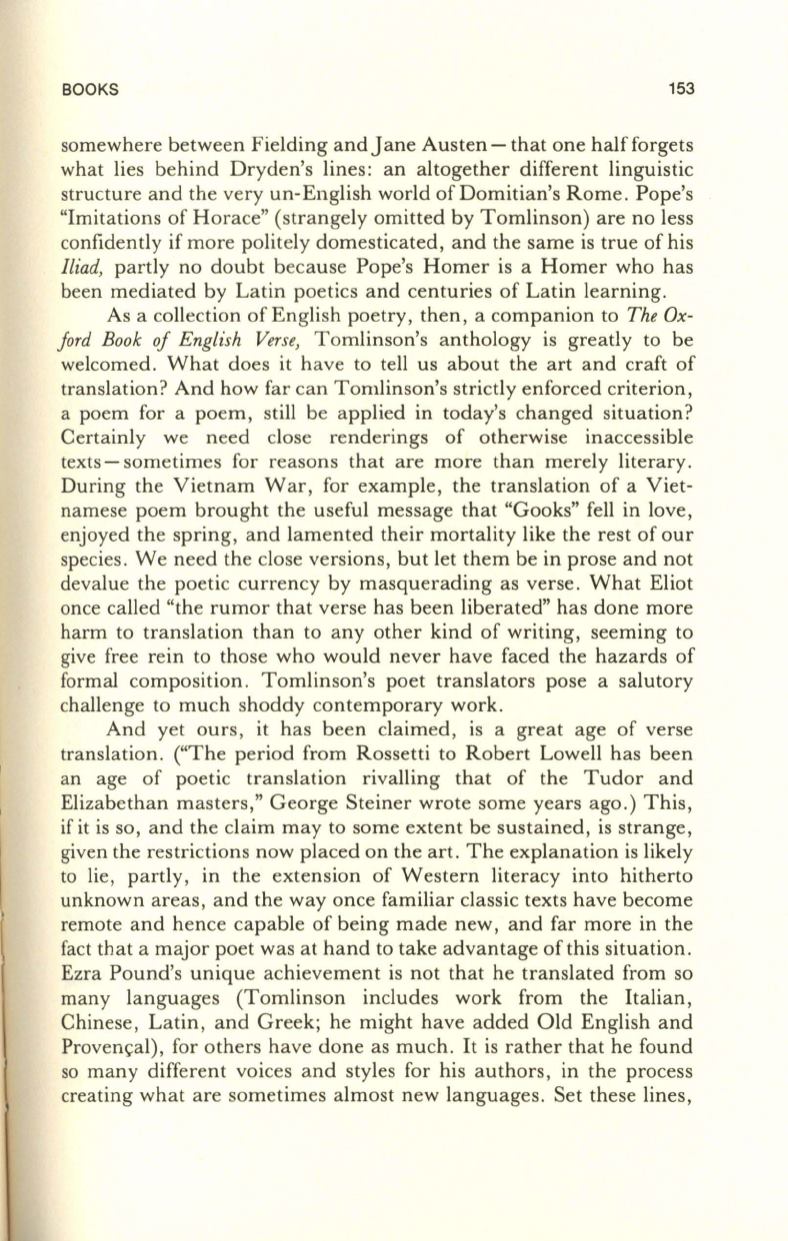
BOOKS
153
somewhere between Fielding andJane Austen- that one halfforgets
what lies behind Dryden's lines: an altogether different linguistic
structure and the very un-English world of Domitian's Rome. Pope's
"Imitations of Horace" (strangely omitted by Tomlinson) are no less
confidently if more politely domesticated, and the same is true of his
Iliad,
partly no doubt because Pope's Homer is a Homer who has
been mediated by Latin poetics and centuries of Latin learning.
As a collection of English poetry, then, a companion to
The Ox–
ford Book of English Verse,
Tomlinson's anthology is greatly to be
welcomed. What does it have to tell us about the art and craft of
translation? And how far can Tomlinson's strictly enforced criterion,
a poem for a poem, still be applied in today's changed situation?
Certainly we need close renderings of otherwise inaccessible
texts - sometimes for reasons that are more than merely literary.
During the Vietnam War , for example, the translation of a Viet–
namese poem brought the useful message that "Gooks" fell in love,
enjoyed the spring, and lamented their mortality like the rest of our
species. We need the close versions, but let them be in prose and not
devalue the poetic currency by masquerading as verse . What Eliot
once called "the rumor that verse has been liberated" has done more
harm to translation than to any other kind of writing, seeming to
give free rein to those who would never have faced the hazards of
formal composition. Tomlinson's poet translators pose a salutory
challenge to much shoddy contemporary work.
And yet ours, it has been claimed , is a great age of verse
translation. ("The period from Rossetti to Robert Lowell has been
an age of poetic translation rivalling that of the Tudor and
Elizabethan masters," George Steiner wrote some years ago.) This,
if it is so, and the claim may to some extent be sustained, is strange,
given the restrictions now placed on the art. The explanation is likely
to lie, partly, in the extension of Western literacy into hitherto
unknown areas, and the way once familiar classic texts have become
remote and hence capable of being made new, and far more in the
fact that a major poet was at hand to take advantage of this situation.
Ezra Pound's unique achievement is not that he translated from so
many languages (Tomlinson includes work from the Italian,
Chinese, Latin, and Greek ; he might have added Old English and
Proven~al),
for others have done as much. It is rather that he found
so many different voices and styles for his authors, in the process
creating what are sometimes almost new languages . Set these lines,


